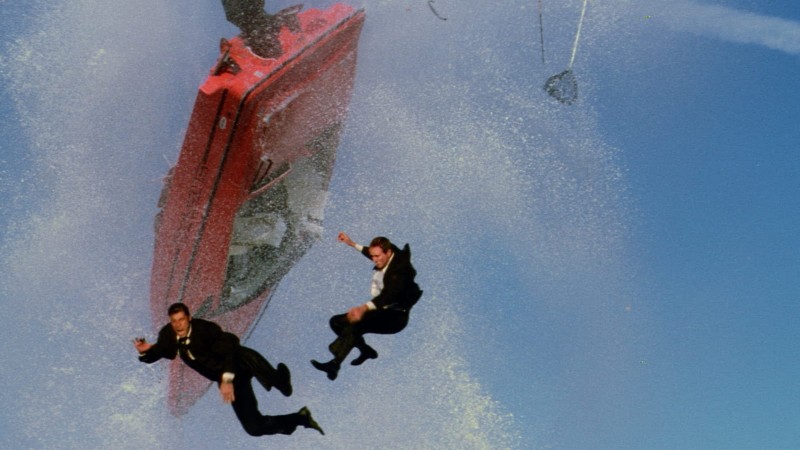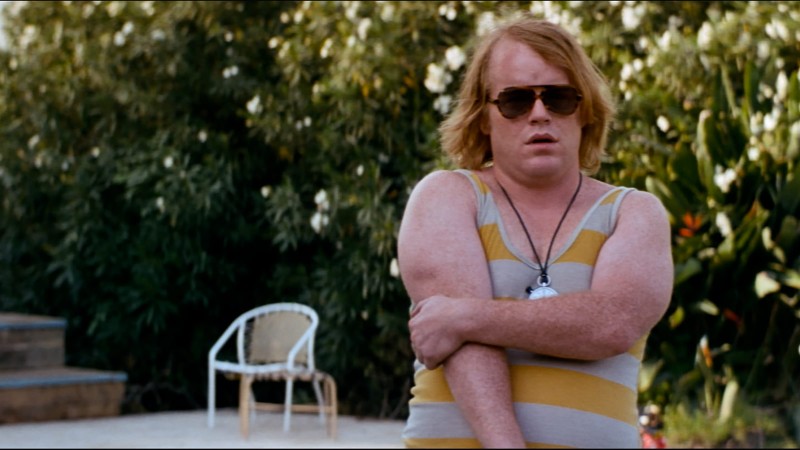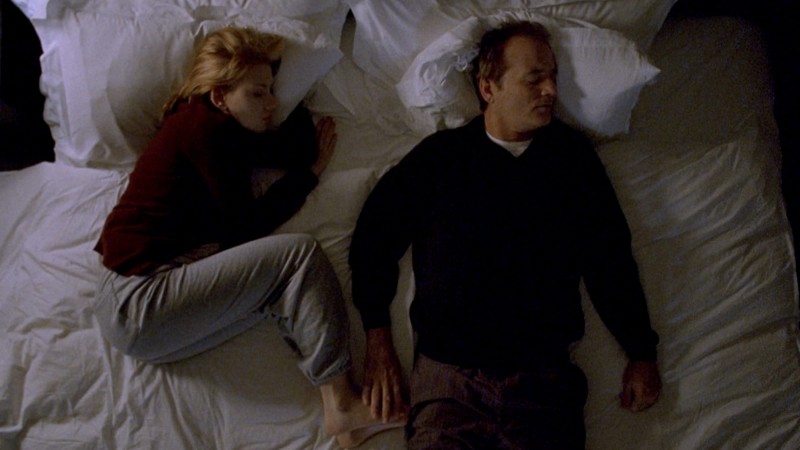The Criterion Channel’s May 2024 Lineup

The Criterion Channel’s May 2024 Lineup
This May, we’re blasting back to the turbulent midcentury moment when old Hollywood gave way to something new, with collections spotlighting Columbia Pictures’ emergence as one of the industry’s top studios, the startling prevalence of stories of mental breakdowns in the sixties, and the astonishing career of Shirley MacLaine, our living link to the golden era. There’s so much more to choose from this month, including a survey of Asian American personal documentary filmmaking, a twenty-fifth-anniversary celebration of some of the best movies of 1999, a late-career trilogy from the director of House, pathbreaking independent work from the Philippines, Michael Roemer’s rediscovered masterpieces, and more!
If you haven’t signed up yet, head to CriterionChannel.com and get a 7-day free trial.
* indicates programming available only in the U.S.
TOP STORIES

1999
WATCH NOW
It’s been twenty-five years since cinema bid the twentieth century farewell with an extraordinary batch of films. In retrospect, 1999 was a time of intriguing cross-pollinations between the studios and independents, national and international productions, and high and low culture. Bringing together art-house favorites (Beau travail, Ghost Dog: The Way of the Samurai), Hollywood hits (Girl, Interrupted; The Insider), and new cult classics (Go, The Virgin Suicides*), this cinematic time capsule takes us back to the premillennial, pre-smartphone, dial-up moment just before the world as we knew it seemed to change forever.
FEATURING: Beau travail (1999), Bringing Out the Dead (1999)*, Buena Vista Social Club (1999), Bye Bye Africa (1999), Following (1999), Ghost Dog: The Way of the Samurai (1999), Girl, Interrupted (1999), Go (1999), The Insider (1999), The Limey (1999), Ratcatcher (1999), The Straight Story (1999)*, Summer of Sam (1999), Trick (1999), The Virgin Suicides (1999)*

Starring Shirley MacLaine
WATCH NOW
A true original, Shirley MacLaine has, over the course of a legendary, nearly seven-decade film career, breathed life into some of the most unforgettable characters ever conjured on-screen. With an infinitely expressive face and a rare ability to put over both comedy and drama (and, often, a bittersweet entwining of the two) with equal aplomb, she achieved stardom by bringing a warmth, vivaciousness, poignancy, and offbeat charm all her own to classics like The Trouble with Harry, The Apartment, and Irma la Douce. And in an industry that often sidelines older women, MacLaine has blazed a trail by delivering some of her most acclaimed performances in the latter half of her career, hitting thrilling emotional highs in triumphs like Terms of Endearment (for which she won the Academy Award for Best Actress), Madame Sousatzka, and Postcards from the Edge.
FEATURING: The Trouble with Harry (1955), Artists and Models (1955)*, The Apartment (1960), Can-Can (1960), The Children’s Hour (1961), Irma la Douce (1963), What a Way to Go! (1964), Gambit (1966)*, Sweet Charity (1969)*, The Other Half of the Sky: A China Memoir (1975), Being There (1979), Madame Sousatzka (1988)*, Postcards from the Edge (1990), Guarding Tess (1994), Bernie (2011)*
COMING JUNE 1: Terms of Endearment (1983)

Hollywood Crack-Up: The Decade American Cinema Lost Its Mind
WATCH NOW
What happened to America in the 1960s? Amid the stream of social upheavals, a wave of films emerged depicting mental illness, madness, extreme emotional states, and chilling violence—jarring transmissions from a new generation of Hollywood iconoclasts that seemed to evoke the very breakdown of the studio system itself. With filmmakers like Samuel Fuller (Shock Corridor), John Frankenheimer (The Manchurian Candidate, Seconds), Robert Aldrich (What Ever Happened to Baby Jane?), and Mike Nichols (Who’s Afraid of Virginia Woolf?) deploying a profusion of wild and warped images, sounds, and themes, these startling portraits of social and psychological collapse capture the tenor of their times while pointing the way toward the explosive experimentation of the oncoming New Hollywood.
Programmed by Nicolas Saada and Richard Peña
FEATURING: The Manchurian Candidate (1962), Pressure Point (1962), What Ever Happened to Baby Jane? (1962), Shock Corridor (1963), Lilith (1964), Brainstorm (1965), The Chase (1966), Seconds (1966), Who’s Afraid of Virginia Woolf? (1966), In Cold Blood (1967), Point Blank (1967), Faces (1968), Pretty Poison (1968), Targets (1968), Uptight (1968)

Set in Venice
WATCH NOW
Venice can be the most magical and romantic of movie settings—or the most sinister and haunting. With its ornate architecture set upon a maze of canals as dense as its history, the city has provided the unforgettable backdrop to countless stories of dreams, nightmares, and intrigue—from the luminous enchantment of David Lean’s Summertime to the decaying opulence of Luchino Visconti’s Death in Venice to the twisted horror of Nicolas Roeg’s Don’t Look Now. Together, these films immortalize one of the world’s most unique destinations—a floating neverland, always sinking, until the day when it will become a pure memory.
FEATURING: Senso (1954), Summertime (1955), Eva (1962), The Honey Pot (1967), Death in Venice (1971), Don’t Look Now (1973), A Little Romance (1979), Identification of a Woman (1982), Nosferatu in Venice (1988), The Comfort of Strangers (1990), Italian for Beginners (2000)*

Columbia’s Golden Era
WATCH NOW
While for many major Hollywood studios the 1950s marked the beginning of their decline, for Columbia Pictures it was a decade of ascendance. Spurred by the desire to differentiate their cinematic output from their television programming, the studio went bold with ambitious prestige productions like From Here to Eternity, On the Waterfront, and The Bridge on the River Kwai—all of which won the Academy Award for Best Picture. From genre gems like the crackerjack western 3:10 to Yuma to some of the era’s best stage-to-screen adaptations (A Raisin in the Sun, Picnic), Columbia Pictures carried the torch for the big-screen experience.
FEATURING: Born Yesterday (1950), From Here to Eternity (1953), On the Waterfront (1954), Picnic (1955), 3:10 to Yuma (1957), The Bridge on the River Kwai (1957), Bonjour Tristesse (1958), Suddenly, Last Summer (1959), A Raisin in the Sun (1961)

First-Person Asian American: 11 Documentaries
WATCH NOW
As independent Asian American filmmakers took the matter of self-representation into their own hands, many turned inward: to their own families, personal histories, and private musings. Some used their own experiences to stand for the larger Asian American community, whose stories were written out of the mainstream, while others gave intimate expression to their own idiosyncratic perspectives. Using lightweight film and video cameras, many of these filmmakers turned to the travelogue format to document family reunions or cross-country or transpacific journeys, finding in their travels across geographies and cultures the full richness and complexity of the Asian American experience.
Programmed by Brian Hu
FEATURING: Who’s Going to Pay for These Donuts Anyway? (1992), a.k.a. Don Bonus (1995), My America . . . or Honk if You Love Buddha (1997), First Person Plural (2000), I Was Born, But . . . (2004), Oh, Saigon (2007), When I Walk (2013), Twinsters (2015), 95 and 6 to Go (2016), No Data Plan (2019), Wisdom Gone Wild (2022)
STREAMING PREMIERES

Tótem
WATCH NOW
In a bustling Mexican household, seven-year-old Sol is swept up in a whirlwind of preparations for her terminally ill father’s birthday party, led by her mother, aunts, and other relatives. As the day goes on, building to an event both anticipated and dreaded, Sol and her family begin to understand the gravity of this year’s celebration. Director Lila Avilés (The Chambermaid) orchestrates a dynamic ensemble cast in this stunning sophomore effort—a warmly observed, poignantly funny, and emotionally expansive study of the ways we cope with grief.

The Breaking Ice
WATCH NOW
Three young lost souls find tentative connection in a frozen world in this delicate, lyrical tone poem of alienation and longing. In cold, wintry Yanji, a city on China’s northeastern border, young urbanite Haofeng (Liu Haoran), visiting from Shanghai, feels lost and adrift. By chance, he goes on a tour led by Nana (Zhou Dongyu), a charming guide who instantly fascinates him and who introduces him to Xiao (Qu Chuxiao), a personable but frustrated restaurant worker. Over the course of a drunken weekend, the three quickly bond as they confront their individual traumas and their desires slowly thaw.
REDISCOVERIES AND RESTORATIONS

Vengeance Is Mine
WATCH NOW
Like director Michael Roemer’s prior features—the powerful civil-rights-era landmark Nothing but a Man and the offbeat mob comedy The Plot Against Harry—this continuously surprising, cuttingly incisive family drama emerged from decades of neglect to be heralded as a lost masterpiece of American independent cinema. Brooke Adams delivers a revelatory, multilayered performance as Jo, a troubled woman who returns to her family home in Rhode Island to confront her childhood demons. There, she becomes unexpectedly embroiled in the simmering domestic discord next door. Bringing vérité naturalism to a seemingly melodramatic premise, Roemer crafts a miracle of novelistic psychological insight that, as it unspools, reveals ever-greater depths of human understanding.

Young Soul Rebels
WATCH NOW
From the moment Parliament’s “P-Funk (Wants to Get Funked Up)” erupts over the opening of Isaac Julien’s breakthrough feature, we know we’re in for a wild ride. The changes keep coming as a murder sets off a police investigation and waves of controversy in London’s Black community. The year is 1977, and while some people are busy getting ready to celebrate Queen Elizabeth’s Silver Jubilee, others have more important things on their minds. Punks and Teds, National Front and Natty Dreads are fighting in the streets, and the authorities seem more interested in harassing the victim’s friends than in solving the crime. A riveting look at the forces of race, class, and sex that reshaped the UK just before the Thatcher years, Young Soul Rebels, which won the 1991 Critics’ Week Prize at Cannes, remains as exciting and vital today as ever.

Shaihu Umar
WATCH NOW
Based on a novel by Abubakar Tafawa Balewa, who later became Nigeria’s first prime minister, this landmark of Nigerian cinema—a work of immense beauty—was thought lost until recently. Set in northern Nigeria toward the end of the nineteenth century, Shaihu Umar starts with a discussion between Islamic students and their renowned teacher, the wise man Shaihu Umar (Umaru Ladan). Asked about his origins, Umar tells his story: of how he was separated from his mother and fell into slavery, how he overcame his circumstances to become an imam, and how, following a particular dream, he resolved to search for his mother.
CRITERION COLLECTION EDITIONS

Tender and devastatingly honest, this essential work of American neorealism is a still-resonant howl of humanity in the face of virulent prejudice.
SUPPLEMENTAL FEATURES: An interview program featuring director Michael Roemer; interviews with actors Ivan Dixon, Abbey Lincoln, and Julius Harris; and more.
DIRECTOR SPOTLIGHTS

Directed by Michael Roemer
WATCH NOW
Now ninety-six years old, director Michael Roemer was always ahead of his time—and at last, after decades of neglect, the world is catching up to his profoundly humanist, unfailingly truthful vision. A Jewish refugee who escaped Nazi Germany as a child, Roemer has made only a handful of features, but each—the landmark portrait of Black American struggle Nothing but a Man, the wryly offbeat gangster comedy The Plot Against Harry, and the slow-burn domestic drama Vengeance Is Mine—is a small miracle of American independent filmmaking, rich in feeling for character and place and graced with a vérité authenticity that reveals deep insights into human relationships.
FEATURING: Nothing but a Man (1964), The Plot Against Harry (1971), Vengeance Is Mine (1984)

Directed by Ayoka Chenzira
WATCH NOW
Working across narrative, documentary, animation, experimental, and interactive cinema, Ayoka Chenzira brings the inner worlds of Black women—their hopes, dreams, anxieties, and struggles—to life with heart, humor, and insight. An all-around creative force, she made her mark as an animator with acclaimed shorts like Hair Piece: A Film for Nappy Headed People, a sly commentary on Eurocentric beauty standards, and the inventive dance film Zajota and the Boogie Spirit, before directing the feature Alma’s Rainbow, an exuberant coming-of-age tale that has taken its place as a touchstone of 1990s Black independent cinema. Continuing to push boundaries with the interactive science-fiction fantasy HERadventure, Chenzira remains an innovator whose work has blazed a trail for Black women to tell their own stories on-screen.
FEATURES: MOTV (My Own TV) (1993), Alma’s Rainbow (1994)
SHORTS: Syvilla: They Dance to Her Drum (1979), Hair Piece: A Film For Nappy Headed People (1984), The Lure and the Lore (1988), Zajota and the Boogie Spirit (1989), Pull Your Head to the Moon: Stories of Creole Women (1992), Williamswood (1992), Snowfire (1994), In the Rivers of Mercy Angst (1997), HERadventure (2014)

Nobuhiko Obayashi’s Antiwar Trilogy
WATCH NOW
Confronting both the specter of World War II and the aftermath of the 2011 Tohoku earthquake and tsunami, these stunning late-career triumphs from Japanese iconoclast Nobuhiko Obayashi offer a subversive, typically idiosyncratic reflection on national history and tragedy. Replete with the boldly stylized, avant-pop flourishes that define his work (most famously the delirious cult freak-out House), these narratively distinct but thematically connected films—which culminated in his deeply personal penultimate feature, the forty-years-in-the-making passion project Hanagatami—look to the past to issue an urgent warning about the perilous present.
FEATURING: Casting Blossoms to the Sky (2012), Seven Weeks (2014), Hanagatami (2017)

Directed by Sara Driver
WATCH NOW
Everyday reality slips into surrealist reverie in the uncanny visions of Sara Driver, whose films possess the hallucinatory textures and hypnotic rhythms of a waking dream. A central but often overlooked linchpin of the 1980s downtown New York arts scene, Driver made her directorial debut with You Are Not I, a mesmerizingly eerie adaptation of a Paul Bowles story that was thought lost for decades until it reemerged to take its place as one of the key independent films of the era. In subsequent features Sleepwalk and When Pigs Fly, Driver delved further into the fantastical, crafting modern-day fairy tales whose trancelike spells linger long after the last reel.
FEATURING: You Are Not I (1981), Sleepwalk (1986), When Pigs Fly (1993), The Bowery (1994)
HOLLYWOOD HITS

Once Upon a Time in America
WATCH NOW
Chronicling five decades in the life of a Lower East Side mobster, Sergio Leone’s final masterwork reimagines the gangster saga as a vehicle for limitless stylistic expression.

Adaptation.
WATCH NOW
Continually self-destructing and reinventing itself with whiplash-inducing abandon, this brilliantly inventive head trip from director Spike Jonze and writer Charlie Kaufman turns the art of screenwriting inside out.
TWENTY-FIRST-CENTURY CINEMA

When the Apocalypse Is Over: New Independent Philippine Cinema
WATCH NOW
These stylistically radical, bracingly contemporary films offer new ways of seeing Philippine myths, pasts, presents, and futures. Making innovative use of digital technologies, extreme color grading, and unexpected aspect ratios, a new generation of young Philippine filmmakers explodes genre conventions to imagine stories of absurd, alienating worlds and lonely characters longing for something or someone outside the limited reach of the frame. Taken together, these alternate cinematic dimensions form an exciting body of work that nods to the past while feeling startlingly, ecstatically new.
Programmed by Aaron Hunt
FEATURES: Fisting: Never Tear Us Apart (2018), Cleaners (2019), For My Alien Friend (2019)
SHORTS: OctoGod (2019), Dikit (2021), i get so sad sometimes (2021), It’s Raining Frogs Outside (2021), Somewhere a Destination (2021), Bold Eagle (2022), The Gossips of Cicadidae (2022), the river that never ends (2022), Rocks in a Windless Wadi (2022), Hito (2023)

Amélie
WATCH NOW
The sensation that enchanted the world and made Audrey Tautou an international star is an irresistible cinematic soufflé set in a lovingly photographed fairy-tale Paris.
SHORT FILMS

Animal Shorts
WATCH NOW
Horses and foxes and snails, oh my! The wide, wild world of animals is on parade in a menagerie of wondrous, playful, affectionate shorts, which span silent and sound, documentary and fiction, live action and animation. From mammals to birds to reptiles to mollusks, creatures great and small, cuddly and majestic, domesticated and untamed are the natural-born stars of these loving and imaginative tributes to the myriad friends with whom we share our world.
FEATURING: A Dog’s Life (1918), White Mane (1952), The Magic Horse (1953), Les escargots (1966), The Horse (1973), Pigeons in the Square (1982), We’re Leaving (2011), The Chicken (2014), Hairat (2017), In Dog Years (2019), Mutts (2019), Fox Film (2020)



